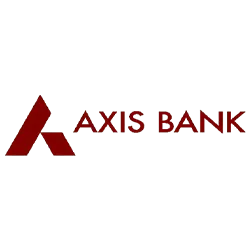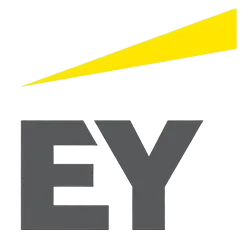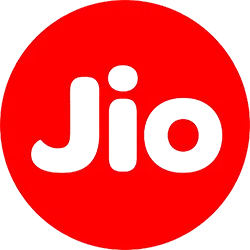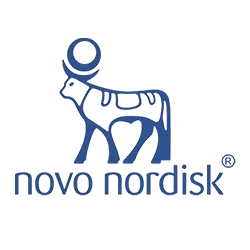Overview
The Android App Developer Course is a complete, hands-on training program designed to make you proficient in designing, developing, testing, and deploying mobile applications on the Android platform. With Android powering nearly 90% of smartphones worldwide, the demand for skilled Android developers is consistently growing. This course prepares you to meet that demand with in-depth technical training and real-world application of skills.
You’ll learn how to build apps from scratch using industry tools such as Android Studio, implement responsive UI/UX, integrate APIs and databases, and finally publish and maintain your apps on the Google Play Store. The course also focuses on clean code architecture, performance optimization, and real-time debugging.
Whether you're a complete beginner, software developer looking to branch into mobile, or an entrepreneur wanting to create your own mobile product, this course equips you with job-ready skills aligned with industry needs.
Course Highlights
-
Introduction to Android Development
Learn the Android ecosystem, app components (Activities, Services, Broadcast Receivers, Content Providers), and system architecture. Understand the Android Application Lifecycle in depth. -
Android Studio & SDK Tools
Set up the IDE, configure AVDs, manage Gradle, and work with emulators for real-time testing and debugging. -
Kotlin and Java Programming
Choose between Java and Kotlin for your apps. Explore core concepts, including classes, inheritance, data types, and collections. -
UI/UX Design Principles
Create sleek, responsive interfaces using XML, ConstraintLayout, RecyclerView, Navigation Components, Material Design guidelines, and support for multiple screen sizes. -
App Functionality & Navigation
Learn intents, fragments, activity stacks, state preservation, ViewModel, LiveData, and Jetpack Navigation components for clean navigation architecture. -
Local & Cloud Data Storage
Use SharedPreferences for lightweight data, SQLite and Room for structured data, and Firebase Realtime Database or Firestore for cloud-based data handling. -
RESTful API Integration
Make network requests using Retrofit and Volley. Handle JSON parsing, pagination, image loading (Glide/Picasso), and implement authentication (OAuth 2.0, Firebase Auth). -
Notifications and Background Tasks
Work with push notifications using Firebase Cloud Messaging (FCM), background processing with WorkManager, JobScheduler, and foreground services. -
Advanced Features & Sensors
Access device hardware including camera, microphone, GPS, accelerometer, fingerprint sensor, and integrate Google Maps SDK and Location APIs. -
Testing and Debugging
Unit testing with JUnit, UI testing with Espresso, and debugging tools for memory leak detection (LeakCanary) and performance profiling. -
Publishing & Maintenance
Sign APKs, create ProGuard rules, use Play Console, implement in-app updates, A/B testing with Firebase, and monitor crash analytics with Firebase Crashlytics. -
Monetization Strategies
Implement Google AdMob, in-app purchases, subscriptions, and explore third-party ad networks for revenue generation. -
Capstone Projects & Portfolio Building
Build 2–3 production-grade apps (e.g., weather app, chat app, location-based app). Showcase GitHub code, Play Store links, and presentation decks for interviews.
Course Details
-
Duration: 60 days
-
Learning Format: Instructor-led live sessions + self-paced practice
-
Mode: Online
-
Project-Based Learning: Hands-on coding + assessments
-
Tools Used: Android Studio, Firebase, Postman, Git, Retrofit, Room, SQLite, Figma (UI Design), GitHub
-
Eligibility: Anyone with basic Java knowledge (no prior Android experience needed)
-
Pay After Placement: No upfront fees—pay only after you land a job
-
Expected Salary Range After Placement: ₹6–18 LPA, depending on prior experience and project quality
-
Placement Support: Resume prep, mock interviews, referrals, and hiring from top partners in fintech, edtech, and startups
Why Choose This Course
-
Pay After Placement Model: You don’t pay until you get placed in a relevant Android development job
-
Industry-Relevant Curriculum: Curriculum tailored with input from Google-certified developers and startup CTOs
-
Real-Time Mentorship: 1:1 mentorship and live debugging assistance from working Android engineers
-
Job-Ready Portfolio: You graduate with deployable apps, GitHub contributions, and a professional Play Store presence
-
Interview Preparation: Resume crafting, mock interviews, HR support, and company-specific preparation sessions
-
Proven Outcomes: Multiple batches placed in companies like Razorpay, Zomato, Swiggy, Paytm, Byju’s, Tata Neu, and more
-
Strong Alumni Network: Join a growing community of successful mobile developers working at top Indian and global companies














































